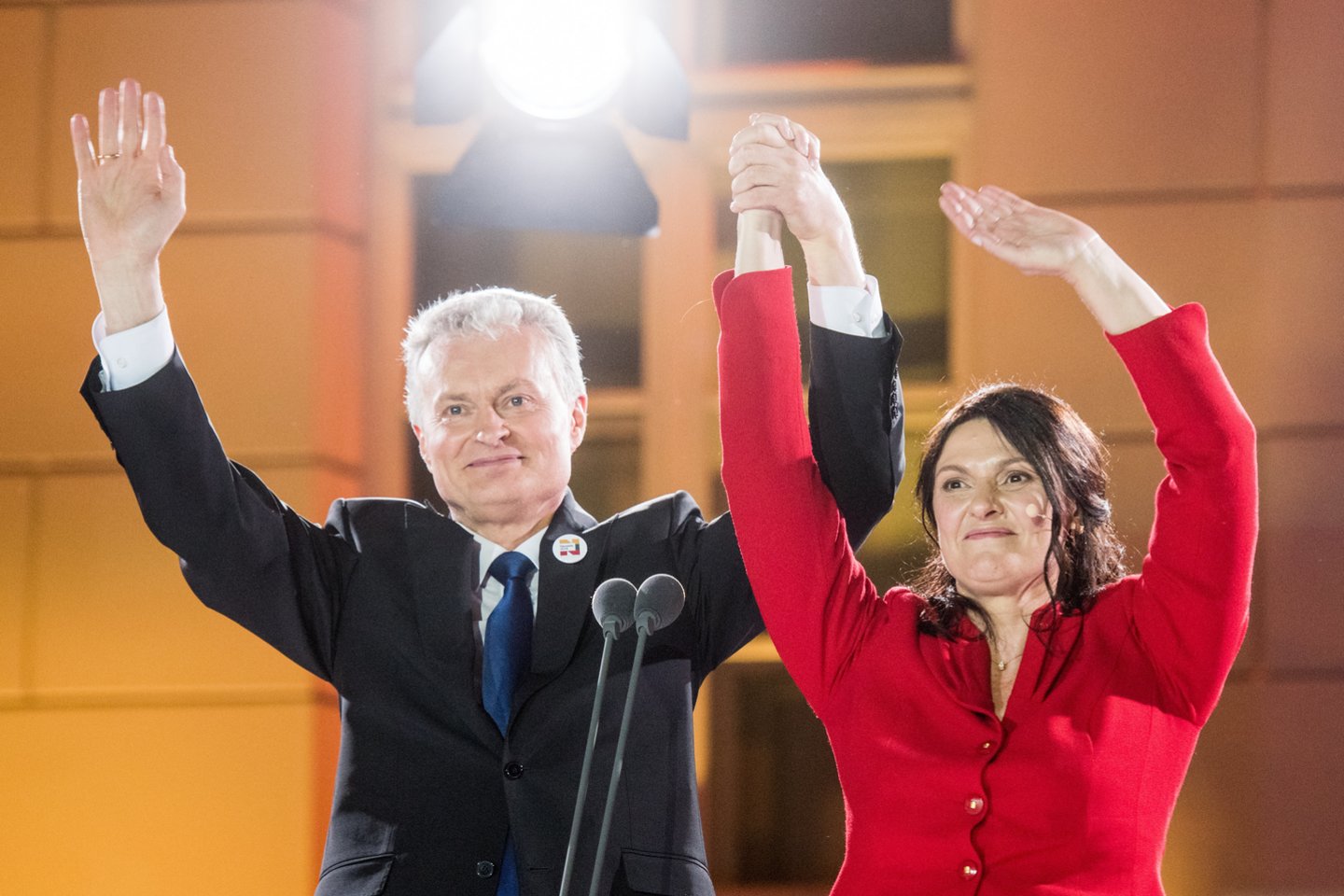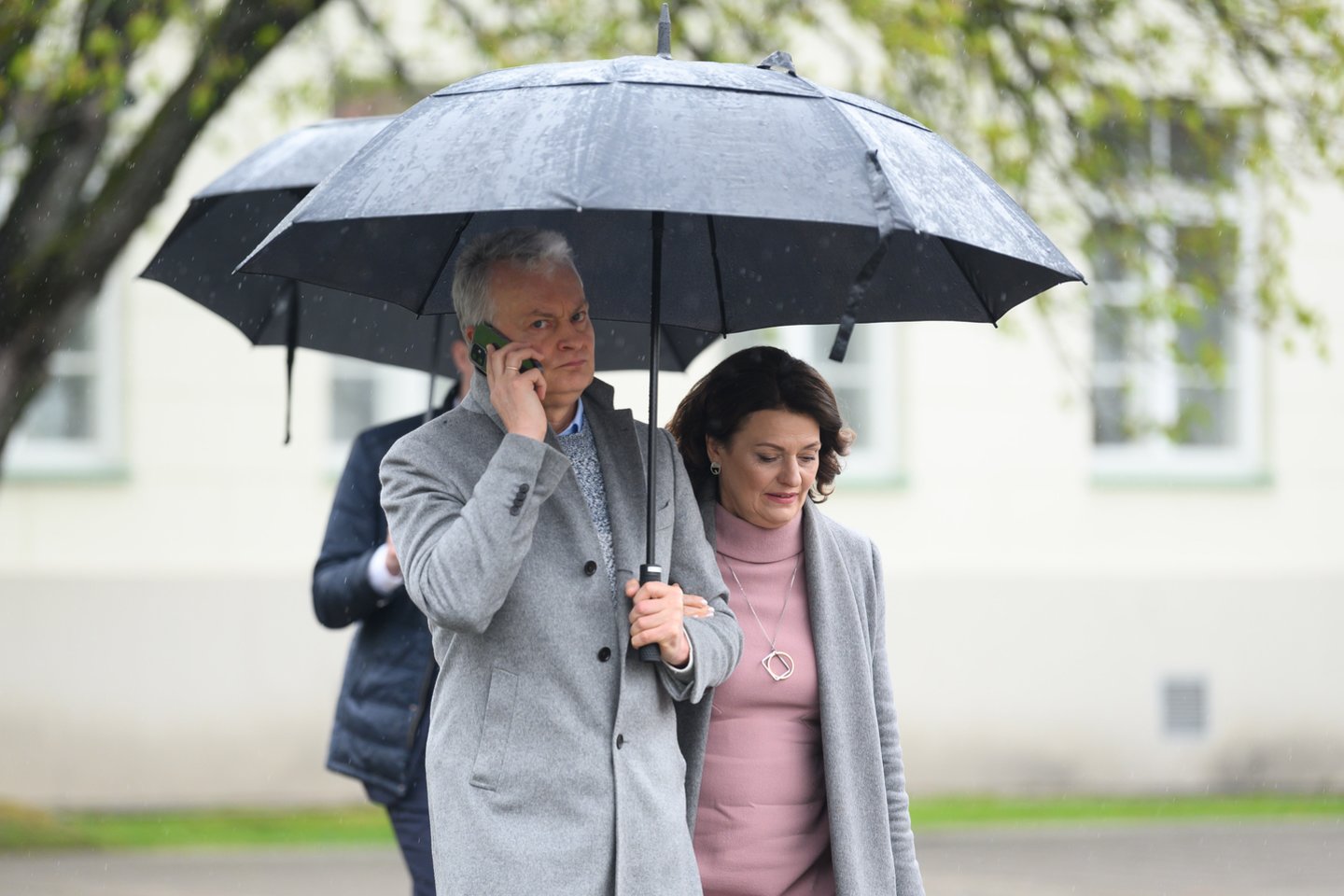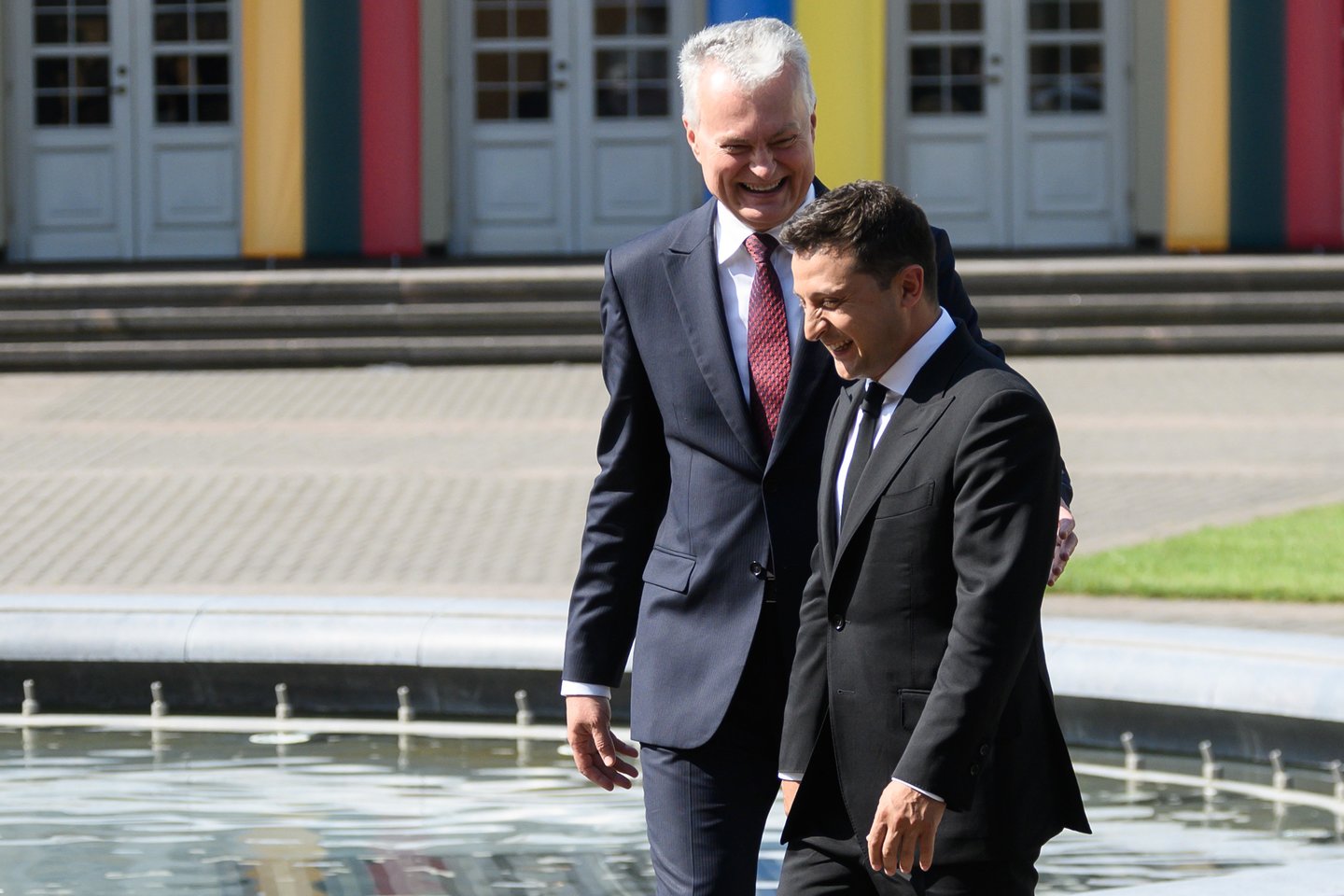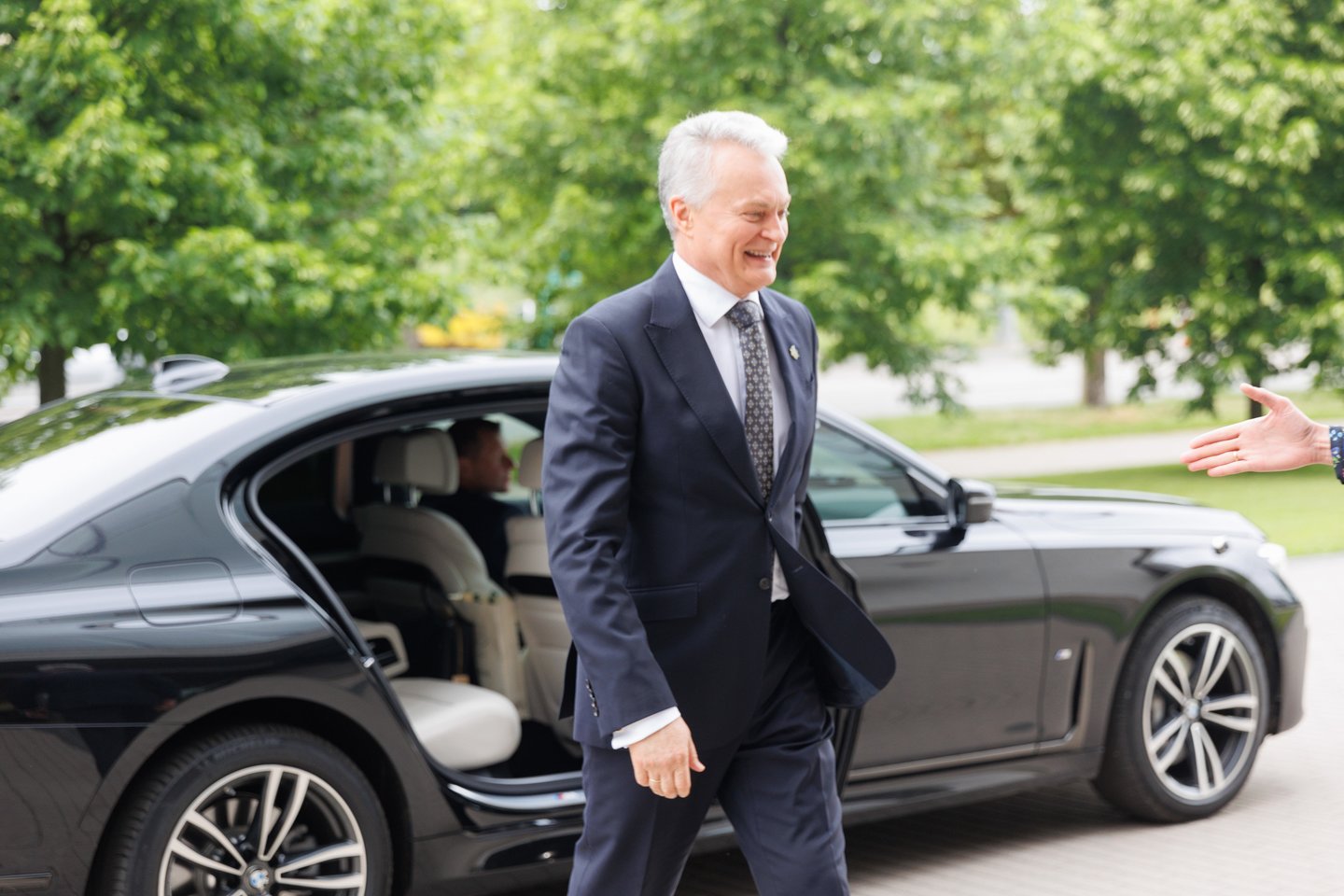However, since his inauguration, Mr Nausėda has had to ride the roller coaster of American ratings and fight for leadership on the foreign policy front.
Experts interviewed by the news portal lrytas.lt assessed how and why the President's popularity has changed, what makes the third year of his presidency special, and what is the most important question G.Nausėda still has not answered.
The American rating roller coaster
According to sociologist Vladas Gaidys, head of the Vilmorus Centre for Public Opinion and Market Research, 64.7% of voters had a positive opinion of the newly elected President Nausėda, and six months later, the country's leader had reached the peak of his popularity, enjoying 82.5% of the country's population's support.
However, Nausėda is also familiar with the feeling of falling popularity – at the beginning of February of this year, slightly more than half of the country's population had a positive opinion of the country's leader (50.9%).
After reacting strongly and actively to the war started by Russia in Ukraine, Nausėda has regained the sympathy of the electorate, and his approval rating is now back at 59.2 %.
„The drop in Nausėda's rating was also linked to the consequences of the covid pandemic in March 2020. Nausėda was unable to fulfil his functions as President, which the public imagines – to represent Lithuania in foreign countries,“ recalled Gaidys.
After the flights were disrupted, the President tried to shift his focus to domestic politics, such as coronavirus and vaccination issues, but according to the sociologist, this was not perceived positively by the public.
„At the moment (the President's assessment – editor's note) is influenced by two factors: since February, there has been a lot of political activity on the Ukrainian issue, but also the actual end of the campaign, the President is travelling abroad,“ the sociologist noted.
How does it look between V.Adamkus and D.Grybauskaitė?
Assessing the popularity of President Nausėda in the context of former heads of state Dalia Grybauskaitė and Valdas Adamkus, Gaidys notes that after three years of both the first and second terms, both former heads of state were more popular.
However, only after three years of the first term of V.Adamkus, his popularity and that of G.Nausėda's were equal – 59% of the country's population.
After three years of both the first and second terms, 67% of voters had a favourable opinion of Grybauskaitė, about the same as Nausėda at the beginning of his term.
At the same time, during his second term in office, three years later, V.Adamkus enjoyed 70% public support.
„Both Adamkus and Grybauskaitė came into their first term with extremely high approval ratings of 89%. Comparing Nausėda to these two presidents after three years in office, it could be said that they were more popular. While V.Adamkus had the same rating during his first term in office, three years later,“ Gaidys noted.
Looking forward to a second tenure?
According to the sociologist, in open-ended questions, Grybauskaitė was most often described by respondents as „firm“, „determined“, and „demanding“, while Nausėda would be rated as „moderate“, „moderate“, and „understanding of ordinary people“.
In the history of presidential elections in Lithuania, it can be observed that after „tough“ presidents, the population of the country chooses moderate and diplomatic ones, and vice versa, but V.Gaidys does not think that in the upcoming elections, Lithuanians will necessarily want a „tough handed“ president.
According to him, during the presidential election campaign, the population looks at a particular candidate in the eye and assesses only that person's unique set of characteristics.
„A.Brazauskas was one kind of person and was popular, while V.Adamkus came from a completely different social background and life experience. Grybauskaitė is different again. R.Paksas was also elected in direct elections. Each of them is unique and unrepeatable,“ concluded V.Gaidys.
Therefore, the sociologist did not try to predict whether G.Nausėda would be a clear winner in the upcoming presidential elections.
„The next term depends on other competitors. At the moment, none of them is engaged yet – it is too early, they would be out of breath, and they would all be attacked. But a year from now, we will see candidates who may be completely unexpected – journalists, artists, scientists. Voters want the President to be politically unconnected to any party,“ Gaidys said.
Paradoxes of foreign policy
Gabrielė Burbulytė-Tsiskarishvili, a political scientist at Klaipėda University, told lrytas.lt that each year of Nausėda's presidency has been more and more difficult than the previous one but that the head of state himself has grown as a president.
„The President's behaviour, posture and speech have been growing, changing and getting stronger. Compared to the beginning of his term, Nausėda has matured as a President. At the beginning of the term, we saw hesitancy and fear, but now there is more courage.
The third year has allowed Nausėda to express himself in the area where the President is constitutionally entitled to be – foreign policy“, the political scientist said.
Noting that the majority of the country's population has a more negative view of Lithuania's foreign policy, while the President, who together with the Minister of Foreign Affairs is in charge of this area, has a more positive view, the political scientist questioned to what extent Nausėda had been able to exercise control over this area before.
„Nausėda's foreign policy muscle is bigger now than it was last year. In any case, Taiwan, China, sanctions on Belarusian fertilisers or Kaliningrad transit are seen in the public sphere as initiatives that came from the Government's side,“ Burbulytė-Tsiskarishvili stressed.
Mistakes and victories
At the same time, assessing the mistakes and victories of Nausėda's third year, the political scientist noted that the most striking problem of the President is the same as that of the Government – communication.
„How, when the message is broadcast, what terms and words are used. Many had pointed out that the first time the President reacted so quickly in the public arena was when the opposition walked out of the Seimas session. I would like to see that speed of reaction on other issues, too, particularly on foreign policy. In the third year of his term of office, there were times when everybody was waiting to hear what the President would say – on the same issue of Taiwan,“ the political scientist recalled.
For her part, Burbulytė-Tsiskarishvili praised the President for his quick reaction only after Russia attacked Ukraine, as well as for his tough stance on sanctions against Russia, which the President has taken in a principled manner.
Election promises – the biggest question mark
When asked how Nausėda is doing in implementing his election promises, Burbulytė-Tsiskarishvili said that this is the biggest question mark when assessing the performance of the country's President.
„We are well aware that the biggest electoral promise or slogan with which G.Nausėda was elected President is „welfare state“, but there is a big question mark here.
Today, I would not be able to analyse to what extent the President has succeeded in delivering on his promises because we have not seen a clear pattern in both the elections and the annual reports of how the President understands the welfare state and how he will try to implement it,“ she pointed out.
The political scientist stressed that the welfare state is a model, a set of measures, not individual measures – it is only by implementing the whole list of measures together that we can move towards a welfare state.
„The initiatives of the presidency that have reached the Parliament are isolated, and what is more, we have to take into account what the Government has done. It is difficult to assess what the President's contribution is“, she said.
Burbulytė-Tsiskarishvili identified three classic models of the welfare state: Germany focuses on working people, Italy and other southern European countries on the elderly, and the Scandinavian model focuses on equal opportunities for all.
„But where are we going? What is a welfare state for us? This is a question that I have not received an answer to for the last three years“, said Ms Burbulytė-Tsiskarishvili.







